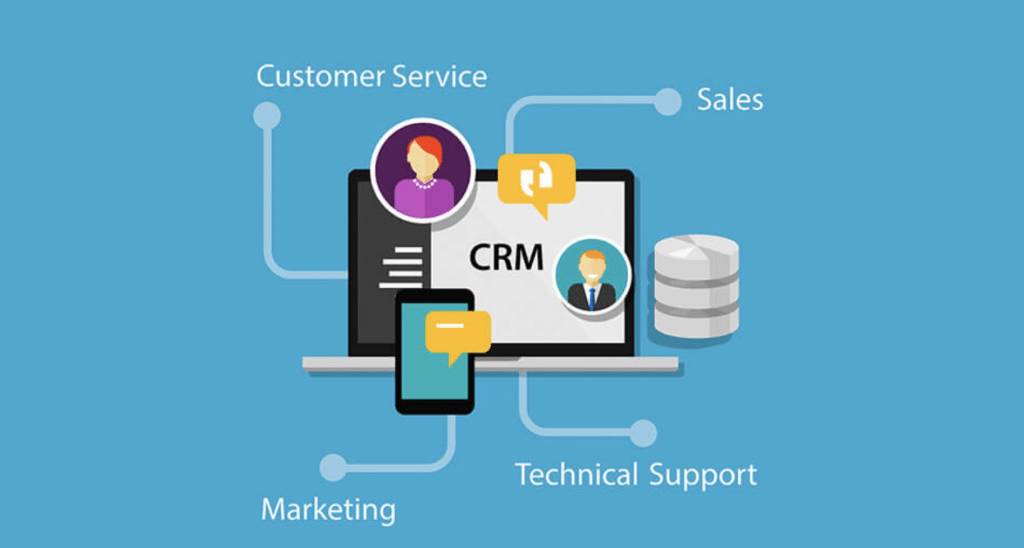Streamlining Customer Service through CRM Technology

Introduction
In today’s fast-paced business world, delivering excellent customer service is paramount for success. As companies strive to maintain a competitive edge, many have turned to Customer Relationship Management (CRM) technology to streamline their customer service processes and enhance customer satisfaction. This article will explore how CRM technology revolutionizes customer service, its benefits, and its potential challenges.
Understanding CRM Technology
What is CRM?
Customer Relationship Management (CRM) is a comprehensive approach that focuses on managing and analyzing customer interactions and data throughout the customer lifecycle. It allows businesses to build and maintain strong customer relationships while increasing their operational efficiency.
Components of CRM
CRM technology comprises various components, including:
- Customer Data Management: This component involves storing and managing customer information, such as contact details, purchase history, and communication preferences.
- Sales Automation: CRM systems automate sales processes, from lead generation to deal closure, enabling sales teams to work more efficiently.
- Marketing Automation: CRM technology helps streamline marketing efforts, including targeted campaigns, lead nurturing, and customer segmentation.
- Service and Support Automation: This component assists customer service teams in managing support tickets, tracking customer inquiries, and providing timely resolutions.
- Analytics and Reporting: CRM systems offer valuable insights through data analysis and reporting, aiding businesses in making data-driven decisions.
The Impact of CRM on Customer Service
Improved Customer Engagement
CRM technology fosters personalized and targeted interactions with customers, resulting in enhanced engagement. Companies can tailor their communication based on customer preferences, ensuring relevant information is delivered at the right time.
Enhanced Customer Support
With CRM systems, customer service teams can efficiently manage customer inquiries and track their status throughout the resolution process. This leads to quicker response times and improved customer satisfaction.
Efficient Ticket Management
CRM technology centralizes customer support tickets, allowing for a more organized and streamlined ticket management process. This prevents duplicate efforts and ensures that no customer inquiries fall through the cracks.
Customer Feedback and Satisfaction
CRM systems enable businesses to gather and analyze customer feedback, identifying areas of improvement and areas of excellence. This feedback loop helps in continuously enhancing customer service standards.
Customer Loyalty and Retention
By fostering strong customer relationships, CRM technology contributes to increased customer loyalty and retention rates. Satisfied customers are more likely to become brand advocates, leading to positive word-of-mouth marketing.
The Benefits of CRM for Businesses
Increased Productivity
With automated processes and centralized data, CRM technology reduces manual tasks, allowing employees to focus on high-value activities. This boosts overall productivity across the organization.
Data-Driven Decisions
CRM systems offer valuable data insights that aid in making informed business decisions. Companies can identify trends, customer preferences, and potential opportunities through data analysis.
Improved Sales Performance
CRM technology provides sales teams with valuable tools to manage leads and opportunities effectively. This leads to improved sales performance and higher conversion rates.
Streamlined Marketing Efforts
CRM systems enable targeted marketing campaigns, increasing the effectiveness of marketing efforts and reducing marketing costs.
Challenges of Implementing CRM Technology
Initial Investment
Implementing CRM technology involves an initial investment in software, hardware, and employee training. However, the long-term benefits often outweigh these upfront costs.
Data Security and Privacy
Storing sensitive customer data in a CRM system requires robust security measures to protect against data breaches and unauthorized access.
User Adoption
Ensuring full user adoption of CRM technology can be a challenge. Employees may resist change or find it difficult to incorporate the new system into their daily workflows.
Data Quality
Maintaining accurate and up-to-date customer data is crucial for CRM effectiveness. Poor data quality can lead to ineffective customer interactions and decision-making.
Conclusion
CRM technology is a powerful tool that can significantly streamline customer service processes and enhance overall customer satisfaction. By leveraging CRM technology, businesses can build stronger customer relationships, boost productivity, and make data-driven decisions to stay ahead in today’s competitive landscape.
FAQs
- What is CRM technology? CRM technology stands for Customer Relationship Management technology, which focuses on managing customer interactions and data throughout the customer lifecycle to improve customer relationships and operational efficiency.
- How does CRM impact customer service? CRM technology improves customer service by fostering personalized interactions, enhancing support ticket management, and enabling efficient customer feedback and satisfaction processes.
- What are the benefits of CRM for businesses? The benefits of CRM for businesses include increased productivity, data-driven decision-making, improved sales performance, and streamlined marketing efforts.
- What challenges can businesses face when implementing CRM technology? Challenges in implementing CRM technology include the initial investment, data security and privacy concerns, user adoption, and maintaining data quality.
- Where can I access CRM technology for my business?